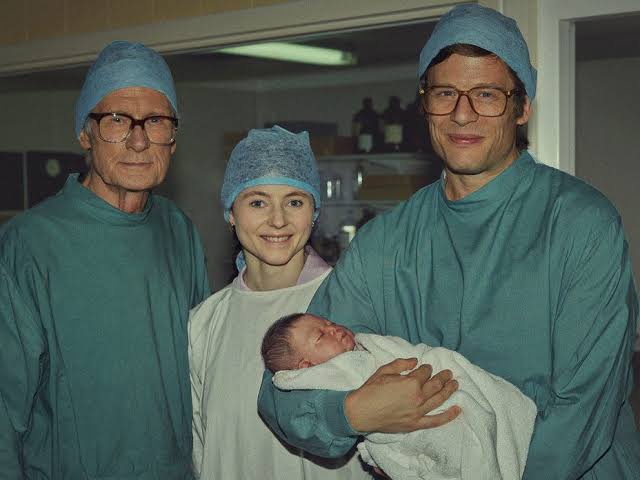
Louise Joy Brown, the world’s first baby conceived through In Vitro Fertilisation (IVF), is celebrating her extraordinary journey and the groundbreaking pioneers who made her birth possible. At 46 years old, Louise is now championing a new film, Joy, which highlights the challenges and triumphs behind the revolutionary fertility treatment.
Louise, born on July 18, 1978, to John and Lesley Brown, was hailed as a “test tube baby,” though the fertilization process was carried out in a desiccator bottle, not a test tube. Her birth marked one of the most significant medical advancements of the 20th century, sparking awe and controversy globally.
The Story Behind Joy
The film Joy, produced by ITV, explores the decade-long struggle of three IVF pioneers: gynaecologist Patrick Steptoe, scientist Bob Edwards, and embryologist Jean Purdy. These trailblazers faced staunch opposition from religious groups, ethical debates, and scientific hurdles. Despite these challenges, their work laid the foundation for modern reproductive science.
During a visit to Bourn Hall, Cambridge—the fertility clinic established by the pioneers in 1980—Louise reflected on their legacy. “You can see their pride in every story of success that followed,” she remarked.
A Story of Determination and Inequality
Louise’s parents, working-class individuals chosen for the experimental procedure, became part of history. Their story sheds light on the ongoing disparities in IVF access, with many NHS patients facing long wait times and private care costs soaring.
The film also seeks to correct historical oversights, especially regarding Jean Purdy, the first embryologist and a key player in IVF’s success. Despite her critical role, Purdy’s contributions were largely erased from history.
Actor Bill Nighy, who portrays Patrick Steptoe, emphasized, “It’s tragic how little recognition she received. She worked in a male-dominated field where fertility science was undervalued.”
A Personal and Emotional Perspective
Joy also draws from the experiences of its writers, Jack Thorne and Rachel Mason, who underwent seven rounds of IVF before welcoming their son. “IVF is still not taken seriously enough,” Rachel shared. “Fertility struggles deserve medical attention, yet IVF is often dismissed as a luxury or middle-class issue.”
A recent report highlighting the psychological impact of failed IVF cycles further underscores the emotional toll on families.
A Call for Change
For Louise, Joy is more than a film—it’s a tribute to the humanity and resilience behind the science. Decades after her birth made headlines, she hopes the film will inspire renewed appreciation for the pioneers of IVF and address the inequalities that persist in fertility care.
“This film isn’t just about the science,” Louise said. “It’s about the humanity, the struggles, and the triumphs that brought us here.”








